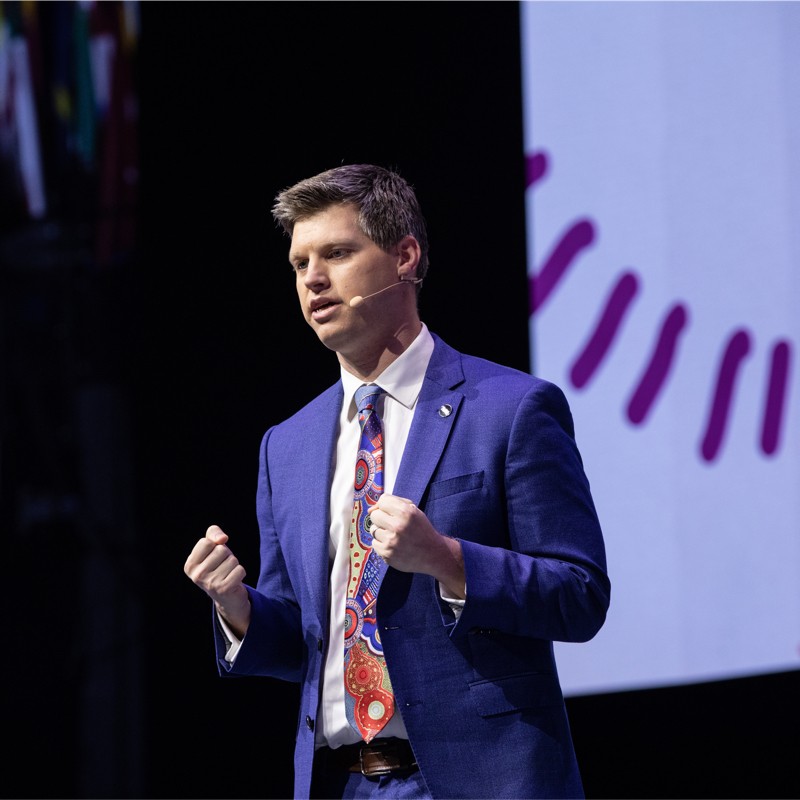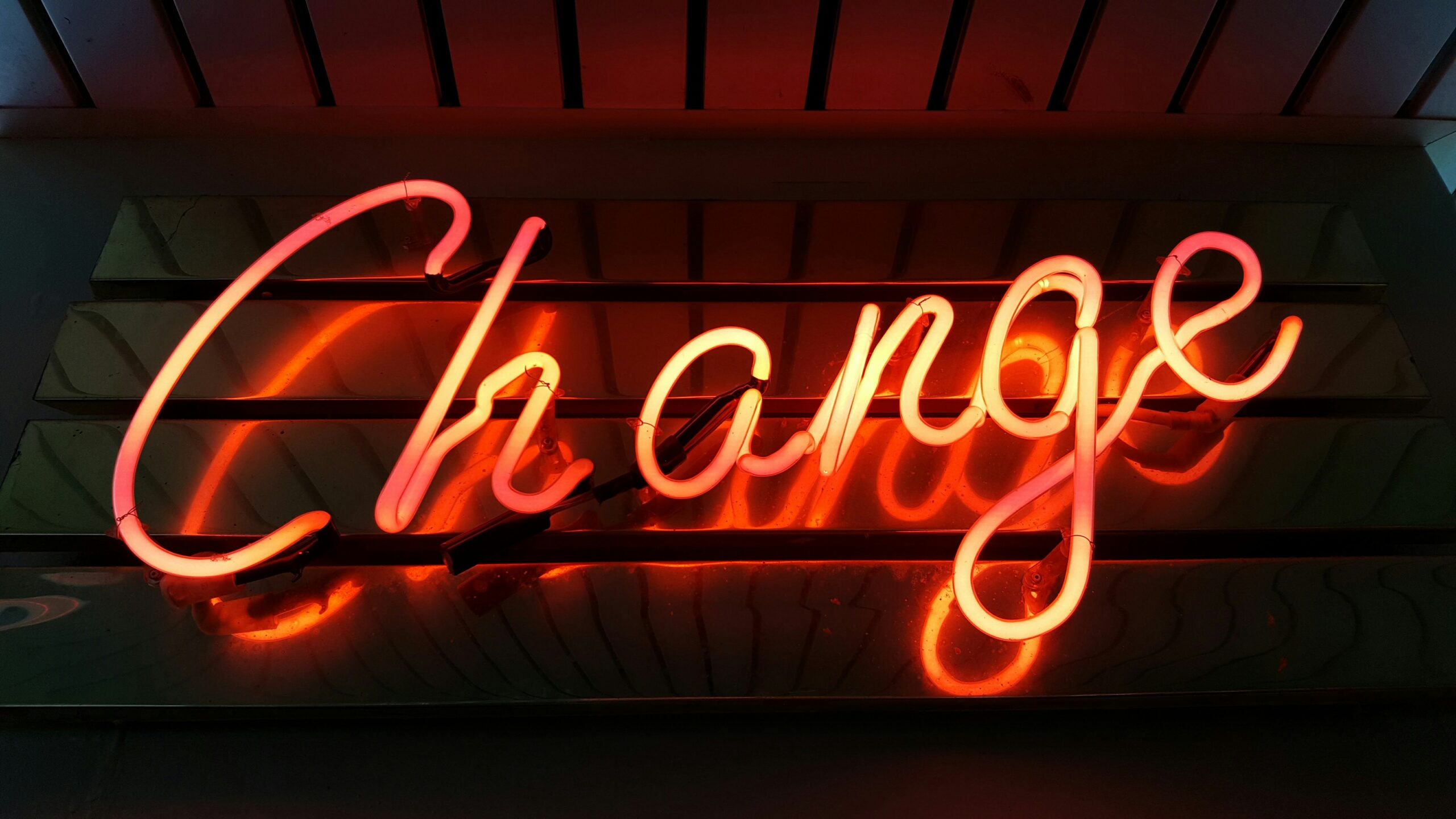By Michael Sheldrick
“Have you ever wondered how to bring about meaningful change in today’s divided world, especially when tempting alternatives for validation exist?”
This question sets the tone for my new book, From Ideas To Impact. In our increasingly complex world, we face a barrage of challenges: misinformation, unmet political promises, and corporate agendas that often eclipse public interest. Last year, as we reached the midpoint for achieving the Sustainable Development Goals (SDGs), it became clear that we were falling significantly short, having reached only 15% of the intended targets. Amidst eroding trust and dwindling solidarity, urgent solutions are needed to tackle pervasive issues like climate change, political unrest, and environmental inequalities.
I hope From Ideas to Impact will be a timely resource in this context. It seeks to offer actionable insights for citizens eager to make a tangible difference and contribute to achieving the SDGs.
The book’s premise is that hope shines through amid the negative headlines often dominating the media. After all, studies reveal that a significant global community consistently yearns for solidarity, proudly identifies as global citizens, and believes in our institutions’ potential to address urgent global issues. Despite the stark contrast between these aspirations and the current reality, as we face a crisis of implementation, this belief remains steadfast.
As long as individuals are eager to support collective action and work together for solutions, we have not reached a point of no return. But how can we best channel this willingness? Many resources already focus on managing philanthropic programs, enhancing individual giving, and modifying consumption habits. While these are vital, and I wholeheartedly support them, my focus is on how each of us can promote systemic policy change. Why? Because addressing our systemic challenges demands systemic solutions, as represented by the SDGs. Although it may seem daunting, engaging in the policymaking process is crucial if we hope to create change on the scale required.
The COVID-19 pandemic alone underscored the urgent need for policy changes regarding climate change. While global emissions temporarily dropped by 4.6% in 2020 due to restricted mobility during worldwide lockdowns, this reduction falls far short of the 50% decrease we must achieve by 2030 to avert catastrophic climate change. Temporary shifts in individual behaviors aren’t enough. We need policies that decarbonize the energy, transportation, and manufacturing sectors to achieve significant and sustained emission reductions.
The term “policies” might sound vague or abstract, but at their core, they’re about people—both in terms of their impact and how they’re crafted. Whether you’re a cultural icon like Taylor Swift, a business leader, or an everyday citizen, each of us can play a role in addressing our implementation crisis by embracing what I term in the book as “policy entrepreneurship.”
So, what is a policy entrepreneur? Coined by political scientist John Kingdon, a ‘policy entrepreneur’ goes beyond being just a “lobbyist for good.” They positively influence legislation and government budgets through direct advocacy and excel at building diverse partnerships, crafting compelling narratives, and seizing opportunities amidst chaos. While some may be professional lobbyists or hold positions of power, many operate outside traditional structures. These visionaries function as both diplomats and implementers, championing innovative solutions that disrupt the status quo for the benefit of society, not just a select few. Above all, they are “doers” capable of seizing opportunities and effecting change in a chaotic world.
One challenge to embracing policy entrepreneurship is the prevalent sense of powerlessness among many everyday citizens and even our leaders. When people lack agency, they often resort to unhelpful and counterproductive distractions, such as policing one another’s social media posts. In response, From Ideas to Impact aims to equip everyone with the tools to identify their unique contributions to the policy process and transform well-meaning intentions into tangible, positive impacts.
I’ve witnessed powerful examples of policy entrepreneurship at all levels, which I describe in detail in the book: grassroots advocates in South Africa securing government funding to provide period products in schools, enabling millions more girls to stay in school; a community reliant on coal bridging divides between unions and environmentalists to secure funding for a just transition away from coal; and leaders of small island nations reshaping the way major financial institutions support them during hurricanes or cyclones.
Based on these observations, From Ideas to Impact outlines eight practical steps to make a difference. These steps are particularly relevant in crucial areas like harnessing Artificial Intelligence for good or confronting climate change head-on.
The consequences of failure are significant. When people perceive a lack of positive action, disillusionment can lead them to seek alternative, albeit illusory, solutions such as populism and authoritarianism. History provides a stark reminder of the dangers of demagoguery fueled by disappointment. As Michael Barber, former advisor to the UK Prime Minister, noted, “Beliefs follow behavior.” Fortunately, the reverse is also true: the best antidote to apathy and powerlessness is action, particularly when its impact is visible and felt.
Ultimately, the stories I share in the book underscore why we should never lose hope, even amidst our divisions. People from all walks of life across the globe demonstrate that systemic policy change is achievable and thriving. Often operating behind the scenes, these successes emerge from united voices, cooperation, and solidarity and are undeniably impactful. The fruits of these efforts are evident: deforestation in the Amazon has dropped to its lowest levels in years; women are represented in every single parliament worldwide for the first time; and after more than a century of research, the world’s first malaria vaccines have been developed.
Yes, there are many ways to effect change: volunteering, fundraising for charity, registering to vote, adopting sustainable behaviors, or discussing key issues like climate change with friends and family. Yet, shaping policy stands out as one of the most impactful actions we can take. While this book doesn’t claim to have all the answers, it offers a starting point for people eager to make a difference. With more of us ready and able to support policy change, we hold the potential to craft new impact narratives that inspire broader change beyond our individual efforts. After all, a single compelling story of change can ignite countless other tales of success, nurturing even greater hope. It all starts with us. As Eleanor Roosevelt wisely advised, “The way to begin is to begin.” So, let’s get started.
From Ideas to Impact is available from April 16, 2024. It can be ordered on Amazon here, or via other outlets here.

Michael Sheldrick
As Co-Founder of Global Citizen—an international education and advocacy organization with the mission to end extreme poverty worldwide—Michael Sheldrick has worked with governments, businesses, foundations, the artist community, and everyday citizens to distribute over $40 billion around the world over the past decade. Now, in From Ideas to Impact: A Playbook for Influencing and Implementing Change in a Divided World, he delivers an inspiring and insightful discussion on how to implement social impact by driving policy change.



